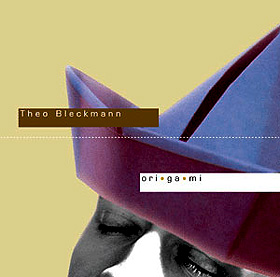
:: origami
Theo Bleckmann [vocals]
John Hollenbeck [drums, percussion, melodica]
Matt Moran [vibraphone]
Skuli Sverrisson [bass]
Ben Monder [guitar]
Songlines, SGL 1534-2
2001
